Strategy Planning
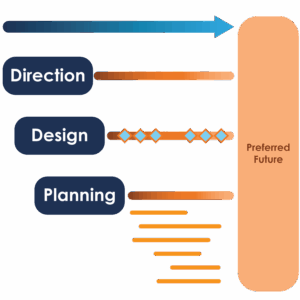
M Powered Strategies helps public leaders plan with purpose and act with clarity. Our framework defines direction, shapes strategy, and organizes the work of change. We start by clarifying intent through discovery and stakeholder input to see whether the organization must adapt to outside forces or fix internal gaps.
Then, we design a roadmap that outlines the conditions needed to reach goals and how efforts connect. Planning sessions turn those conditions into linked projects with clear timelines and owners. We add governance methods that keep leaders informed, track results, and adjust as needed.
Unlike many plans that end up as static reports, our approach is ongoing and hands-on. It ties planning and execution together, helping strategy become part of daily management.
Uniting Vision and Action Through Strategic Planning
Faced with shifting environmental demands and increasing pressure to deliver public value, a regional forest leadership team needed to prioritize resources and align staff with mission-critical goals. Without a unified strategic direction, decision-making was reactive, and long-term planning lacked coherence.
M Powered Strategies partnered with the forest leadership to co-create a forward-looking, five-year strategic plan. Through structured interviews, document analysis, and a series of facilitated workshops, we helped the team surface key priorities, define measurable goals, and build a clear roadmap for action. The process emphasized transparency, inclusivity, and alignment—ensuring that the strategic plan reflected both leadership vision and staff insights. Our facilitation introduced structured decision-making tools that supported consensus and built ownership at every level.
The strategic plan provided a shared foundation for program alignment, resource allocation, and performance accountability. With a renewed sense of purpose and a clear direction, the leadership team began making more confident, mission-driven decisions. The collaborative planning process not only delivered a practical roadmap—it also strengthened internal cohesion and positioned the organization to adapt more effectively to future challenges.
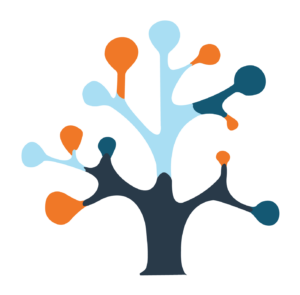
Mission Oriented Decision Model
Mission-Oriented Decision Modeling (MODM) helps public and mission-driven teams make clear, defensible choices when resources are limited. MODM links every decision—such as funding, staffing, or risk response—directly to mission goals.
Teams break down their mission into a weighted structure of goals and objectives, score decision options against shared criteria, and build a ranked list of priorities. This ensures that each choice reflects mission values and context. MODM shifts decision-making from reactive to repeatable, supporting good governance, smart resource use, and lasting change.
MODM runs through four stages: Scaffold (define what matters), Weight (rank priorities), Align & Gauge (evaluate decisions), and Index & Act (sequence actions). M Powered Strategies leads workshops using Excel-based tools and visual methods to keep the process open and data-driven.
MODM helps teams manage tough trade-offs, align work to mission outcomes, and make better use of limited resources. The result is a durable framework that builds trust, speeds decisions, and keeps strategy and execution in sync.
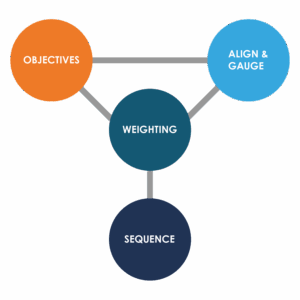
Creating Workforce Alignment with Mission-Oriented Decision Modeling
The leadership team of a large national forest was under pressure to make strategic staffing decisions amid tightening budgets and constraints on permanent hiring. Lacking a clear, transparent process, decisions about which roles to fill often reflected short-term needs rather than long-term mission priorities, creating frustration and limiting the forest’s competitiveness for future funding.
M Powered Strategies introduced our proprietary Mission-Oriented Decision Modeling (MODM) framework to help the forest leadership team align workforce decisions with strategic goals. Through a series of facilitated workshops and interviews, we helped decompose the forest’s mission into enterprise, organizational, and functional priorities. We mapped 180 staff positions to 29 unique roles and assigned relative weights using structured tools to determine each role’s contribution to mission-critical outcomes. By applying MODM’s seven-step process, we produced a transparent, quantifiable decision model that captured each role’s strategic value.
MODM gave the leadership team a repeatable, data-driven process for making staffing decisions, replacing ad hoc approaches with a clearly defined model. This shift led to increased transparency, enhanced internal communication, and a more strategic approach to workforce planning. By integrating MODM, the forest improved its competitiveness for limited funding and reinforced a culture of accountability and mission alignment. The process also served as a blueprint for broader organizational planning, positioning the forest to respond more effectively to future challenges.

Problem Discovery Mapping
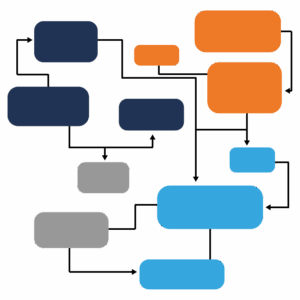
Problem Discovery Mapping (PDM) helps teams make sense of complex issues. When a team feels stuck or overwhelmed by symptoms, PDM turns confusion into shared understanding.
Through a visual workshop, M Powered Strategies guides groups to capture and connect related problems. The result is a cause-and-effect map that exposes hidden links, builds connections, and helps to create next steps. PDM helps teams escape endless analysis and repeated meetings to identify where action will make the biggest impact.
PDM sessions are focused and efficient—often done in one day. Facilitators lead four steps: naming the core issues, identifying causes, mapping links, and outlining next steps. PDM is not about finding solutions or root causes—it defines what to fix and where to start. It often sets the stage for later work in strategy, process, or team development. PDM fits well in public settings, using limited time well and creating space for honest, practical dialogue.
Aligning Regional Leadership Through Problem Discovery Mapping
A leadership team overseeing six national forests sought to improve the effectiveness of their meetings and strengthen collaboration among supervisors. Despite regular coordination, their discussions lacked structure, actionable outcomes, and cohesion, hindering their ability to make strategic, zone-wide decisions in a timely and unified manner.
M Powered Strategies transformed their meeting culture and team dynamics with Problem Discovery Mapping (PDM), a structured technique that helped surface underlying challenges, clarify priorities, and guide the group through collaborative problem-solving. By adapting Lencioni’s Five Behaviors model to their needs, our workshops fostered open dialogue and trust among the leadership team. We also helped the team launch a charter process to define the role of District Rangers in supporting zone-level initiatives and shared outcomes.
The team adopted a more disciplined, impactful meeting format, including monthly in-person sessions and rotating to guide discussions. With improved alignment, the team became better positioned to share personnel, scale restoration efforts, and address landscape-level challenges collectively. The charter framework set the stage for broader ranger collaboration, increased leadership cohesion, and enhanced decision-making. Through structured facilitation and strategic engagement, MPS empowered the team to operate as a unified leadership body with clearer purpose and greater mission impact.

Work of Leaders
The Work of Leaders (WoL) assessment builds on the DiSC model to help leaders see how their natural style affects their results. It asks, “How do you show up as a leader—to your staff and stakeholders?”
M Powered Strategies uses the assessment in both individual and team formats. Leaders apply their tendencies to three key practices: Crafting a Vision, Building Alignment, and Championing Execution. Each is measured through three drivers that show how the team approaches these areas.
The WoL workshop strengthens leadership teams through reflection, discussion, and action planning. It helps each member use their natural style to improve how the group leads and performs together.
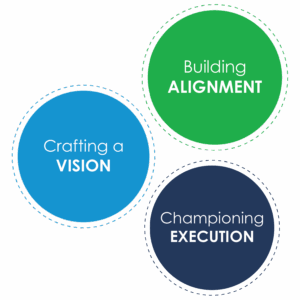
Unlocking Leadership Potential, Elevating Leadership Team Performance
A national forest leadership team sought to improve follow-through and accountability in decision-making. While strategic discussions were frequent, translating those ideas into consistent action across the team remained a challenge.
M Powered Strategies delivered a targeted Work of Leaders assessment and workshop, tailored to the team’s operational context. We guided each leader through a structured self-assessment, followed by interactive sessions focused on championing execution—the final and often most difficult phase of the leadership process. Leaders explored how their individual styles influenced execution and practiced communication and follow-up techniques designed to enhance clarity and drive accountability.
The leadership team reported immediate improvements in team accountability and clarity around next steps. Leaders gained tools to track commitments, ensure follow-through, and reinforce priorities. As a result, execution improved across key initiatives, and the team began operating with greater cohesion and shared responsibility. The workshop catalyzed a shift toward a more action-oriented leadership culture, better equipped to meet the forest’s evolving challenges.

Work Styles and Strengths
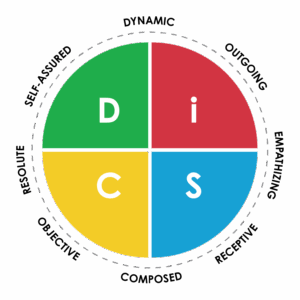
DiSC
DiSC helps people understand how they work, lead, and communicate. It groups behavior into four traits: Dominance (D), Influence (i), Steadiness (S), and Conscientiousness (C).
Our three-hour workshop helps participants interpret their results, understand others’ styles, and build stronger collaboration. Each person also gains lifetime access to the Catalyst platform, where they can compare styles, plan interactions, and learn how to work better with colleagues.
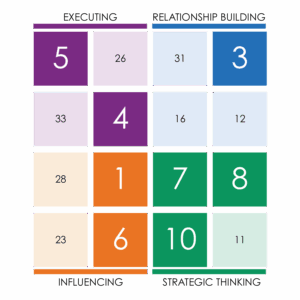
Clifton Strengths
Start with Talent – Finish with Strength. Clifton Strengths helps people and teams focus on what they do best. It identifies natural talents and builds them into strengths through workshops and coaching.
Participants discover their top talents from 34 studied themes. Our four-hour workshops and individual sessions help them apply these strengths in daily work. Team sessions explore how strengths connect across four domains—Executing, Relationship Building, Influencing, and Strategic Thinking.
Managers use this insight to balance workloads, boost engagement, and align team performance with mission goals. The process builds understanding, trust, and accountability while improving results and morale.
From Conflict to Collaboration: Overcoming Team Challenges in Multi-Agency Public Lands Management
A multi-agency training organization for public lands management was grappling with internal conflict, unclear roles, and fractured communication. Leadership transitions and complex governance structures had strained relationships and weakened team cohesion, making it difficult to fulfill the center’s mission effectively.
M Powered Strategies led a targeted intervention that included individual and team-based CliftonStrengths® coaching. Each staff member completed the assessment to uncover their unique strengths, followed by one-on-one coaching sessions to deepen self-awareness and personal development. In facilitated workshops, we brought the team together to explore how individual strengths contributed to collective performance. We connected insights from the assessment to real workplace challenges, helping staff understand how to better collaborate and leverage one another’s capabilities.
The team experienced a marked improvement in mutual understanding and collaboration. Participants reported a deeper appreciation for each other’s strengths and a renewed sense of purpose in their roles. The sessions fostered trust, reduced interpersonal friction, and gave leaders practical strategies to manage conflict and increase engagement. By focusing on what each team member does best, the Carhart Center began operating with greater cohesion, resilience, and clarity—better positioned to meet its inter-agency objectives.

Interpersonal Dynamics
EQ-i
EQ-i measures how well people understand and manage emotions. It covers 16 elements of emotional intelligence, benchmarked against a national sample.
In our workshop, participants explore their results, identify strengths and gaps, and set action plans to improve key areas. They also practice peer coaching and learn to use emotional intelligence in leadership, teamwork, and daily interactions.
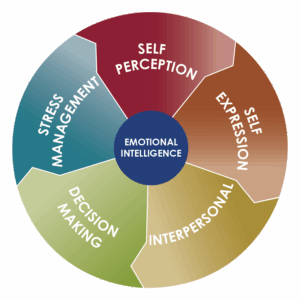
Agile EQ
Agile EQ combines DiSC insights with active emotional intelligence. It focuses on how people adjust their responses and behaviors in different work settings.
In a three-hour workshop, participants identify their default mindsets and learn to stretch beyond them. The goal is to respond with agility to any situation.
Agile EQ builds on the DiSC Workplace assessment and includes lifetime access to the Catalyst site for continued learning. Discounts are available for participants who have already completed DiSC through Catalyst.

Conflict Management
Conflict management is vital for healthy organizations. Poorly handled conflict leads to wasted effort, stress, and risk. Strong conflict skills reduce those costs and build stronger teams.
Our training develops three skills: self-awareness, relationship awareness, and situational awareness. We also offer one-on-one Conflict Coaching to help individuals manage disputes effectively.
The M Powered Strategies approach builds emotional control and communication skills, leading to better collaboration, higher morale, and less friction at work.
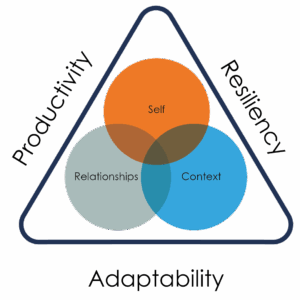

5 Behaviors®
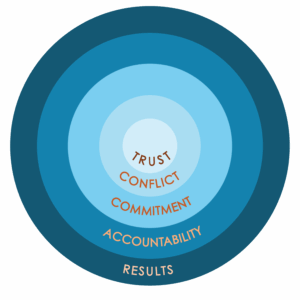
Patrick Lencioni’s Five Behaviors of a Cohesive Team model helps teams reach peak performance through five linked habits: Trust, Productive Conflict, Commitment, Accountability, and Results.
Workshops use assessments and exercises to show how the team functions and where it can grow. This model works for both new and established teams and supports stronger collaboration, communication, and shared purpose.
Our certified facilitators integrate this framework with other tools such as DiSC to improve decision-making and role clarity. Teams leave with clear insights and practical ways to strengthen performance.
From Fragmentation to Alignment: Leadership Development for National Forest Collaboration
Forest Supervisors across six national forests within a region faced persistent challenges in collaboration and decision-making. Variability in leadership styles and legacy communication patterns hindered alignment, diluted accountability, and impacted the team’s ability to respond effectively to regional priorities.
M Powered Strategies delivered a customized leadership development intervention grounded in the Five Behaviors of a Cohesive Team® model. Using this proven framework, we facilitated in-person workshops designed to address trust, conflict, commitment, accountability, and results. Prior to the sessions, we conducted stakeholder interviews to identify core dynamics and align the content with real operational concerns. Through guided exercises and open dialogue, leaders explored how trust and vulnerability underpin effective teamwork and engaged in constructive conflict to clarify expectations and strengthen accountability.
The team emerged with greater psychological safety, clearer communication norms, and stronger alignment around shared goals. Leaders adopted new practices to support accountability and role clarity, including the implementation of a framework for leading future meetings. The process deepened relationships and elevated the team’s ability to collaborate across forest boundaries. By anchoring their development in the Five Behaviors model, the regional team took significant strides toward becoming a high-performing, unified leadership body.
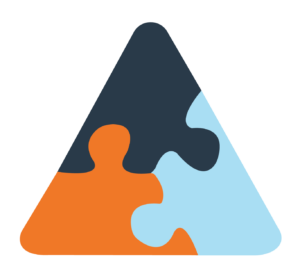
Key Results Area
Results come from people, and people succeed when their roles are clear. M Powered Strategies helps you define and connect roles so that everyone contributes directly to mission outcomes.
We work with managers to identify Key Results Areas (KRAs) and their linked outcomes. These sessions clarify accountability, outputs, and authority for each critical role. A follow-up team workshop aligns everyone around shared goals and expectations.
This process strengthens commitment, reduces conflict, and lays the groundwork for succession planning. It helps leaders and teams perform with focus, ownership, and clarity.
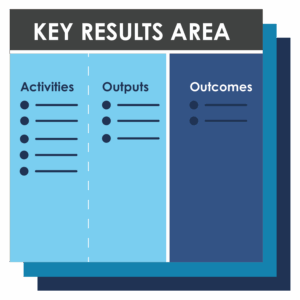
Designing for Results: Reshaping Leadership to Achieve Mission
As a nonprofit approached the centennial celebration of the public lands it is dedicated to protecting, its leadership recognized that the existing organizational structure could not support the evolving strategic vision. Misalignment at the senior leadership level and performance issues in both development and finance functions appeared to create organizational bottlenecks, inhibiting progress.
M Powered Strategies discovered deep structural challenges that extended beyond just isolated performance concerns. Using our Key Results Area (KRA) technique, we co-developed a redesigned leadership structure grounded in defined outcomes, clear accountability, and decision-making authority. We introduced two new executive roles—Chief Growth Officer and Chief Financial and Administrative Officer—and refined responsibilities across the leadership team. Through iterative interviews and facilitated sessions, we established clear role interfaces and redesigned reporting relationships. Our approach included knowledge transfer to internal leaders, enabling sustained implementation.
The new structure reduced interpersonal conflict, increased throughput, and boosted staff engagement. Clarifying roles helped empower leadership, allowed staff to take ownership of outcomes, and created space for candid self-assessment. The Board endorsed the redesign, and we extended the role definition process to board leadership and committee chairs, ensuring alignment from governance to execution. The organization emerged with a leadership team positioned to drive its next chapter of mission impact.
Take Your First Step Now!
